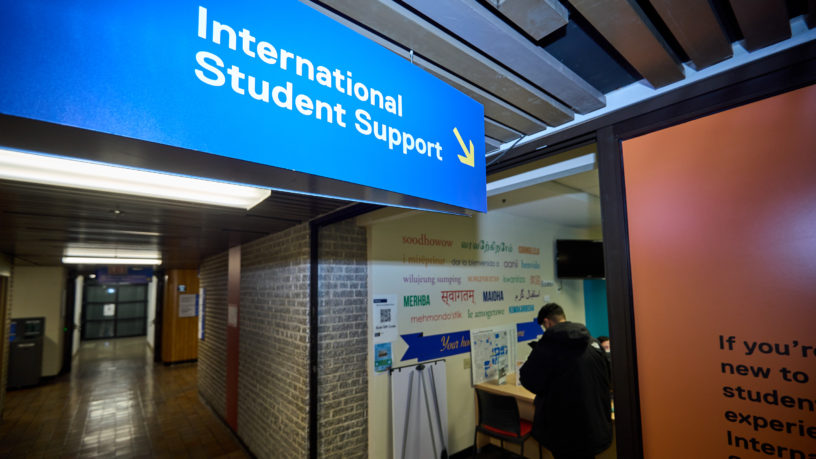By Krishika Jethani
International students at Toronto Metropolitan University (TMU) said they are concerned about their future in Canada due to the recent restrictions placed on student and post-graduate work permits.
Earlier this year, the federal government announced it will approve approximately 360,000 undergraduate study permits for 2024, reducing the number by 35 per cent from 2023.
In a press conference, Canadian Minister of Immigration, Refugees and Citizenship Marc Miller said the cap will be in place for two years and the number of permits to be issued in 2025 will be reassessed at the end of this year.
Starting on Sept. 1, 2024, international students who attend private colleges licensed to deliver the curriculum of an associated public college are no longer eligible to apply for a post-graduate work permit [PGWP].
Tomi Daniels, a third-year professional communication student from Nigeria, was “shocked” when she heard about the changes.
“I came [to Canada] in 2021 and my younger brother just came in last year. If he had just waited another year, there could have been a possibility that he wouldn’t get it,” she said.
Daniels knows other international students who have siblings or friends wanting to come to Canada. But now, there is a feeling of “panic” around it.
“I just kind of feel worried for the future of international students wanting to come to Canada,” she said.
Miller also said international students applying for a study permit must have access to at least $20,635, instead of the original $10,000 requirement that had been in place for the past two decades. The new financial requirement is to help international students understand the increased cost of living and studying in Canada.
Ontario Minister of Colleges and Universities Jill Dunlop also announced Ontario colleges and universities will be required to guarantee housing for incoming international students.
At the same press conference as Miller’s announcement, Canadian Minister of Housing, Infrastructure and Communities Sean Fraser said he expects community members to feel relieved as the cap on international students will help with the affordability crisis.
In an emailed statement to The Eyeopener, TMU President Mohamed Lachemi said it’s hard for the university to determine the full impacts of the federal government’s decision.
“I do want to reassure prospective students who are considering studying at TMU that the university continues to welcome international students as an integral and valued part of our community,” Lachemi said. “We are here to support them through these changes.”
Lachemi also said that TMU is still assessing the housing policy changes since the Ontario government has not released any details yet.
Despite the uncertainty, he said the university will continue to prioritize first-year and farthest distance students for residence spaces.
Cathy Crowe, a professor in the department of politics and public administration at TMU, doesn’t think there will be any “apparent improvement” in the housing crisis.
“When [international students] are here they face the same challenges, perhaps more of a challenge, in finding affordable housing,” she said. “Universities and colleges have been very hard-pressed to assist them in finding housing, but they’re certainly not the cause of the housing price.”
Avi Friedman, an architecture professor at McGill University, said the rise in the cost of housing “far exceeded” the rise in people’s income.
“In the past five years, we have seen the situation rapidly deteriorate but it deteriorated now to a state where the government needs to find all kinds of urgent, massive measures, whether they are true or not…and I believe that among other things, they target international students,” he said.
British Columbia announced they are banning new post-secondary institutions from applying to enroll international students for the next two years.
In a press conference, B.C.’s outgoing Minister of Post-Secondary Education Selina Robinson said the freeze is due to the international education system not working well and “exploitative practices.”
“International students contribute to Canada’s economy. They come here, they spend money, we need them. I don’t think this is a sure thing, that if you limit them, all of a sudden there will be affordable housing,” said Friedman.
Sepehr Parniani, an international fourth-year TMU creative industries student from Iran, said the government is putting a lot of constraints on people that are trying to make a living here.
He believes it’s going to impact his future studies as he is looking into applying to grad school.
“The only thing that’s got me really concerned is the post-grad work permit because that’s what I’m really counting on for getting my [permanent residence],” he said.
“I know they also increased the minimum funds you must have available,” Parniani continued. “This, next to accepting [fewer] applications and having to guarantee housing… just makes me concerned.”










Leave a Reply